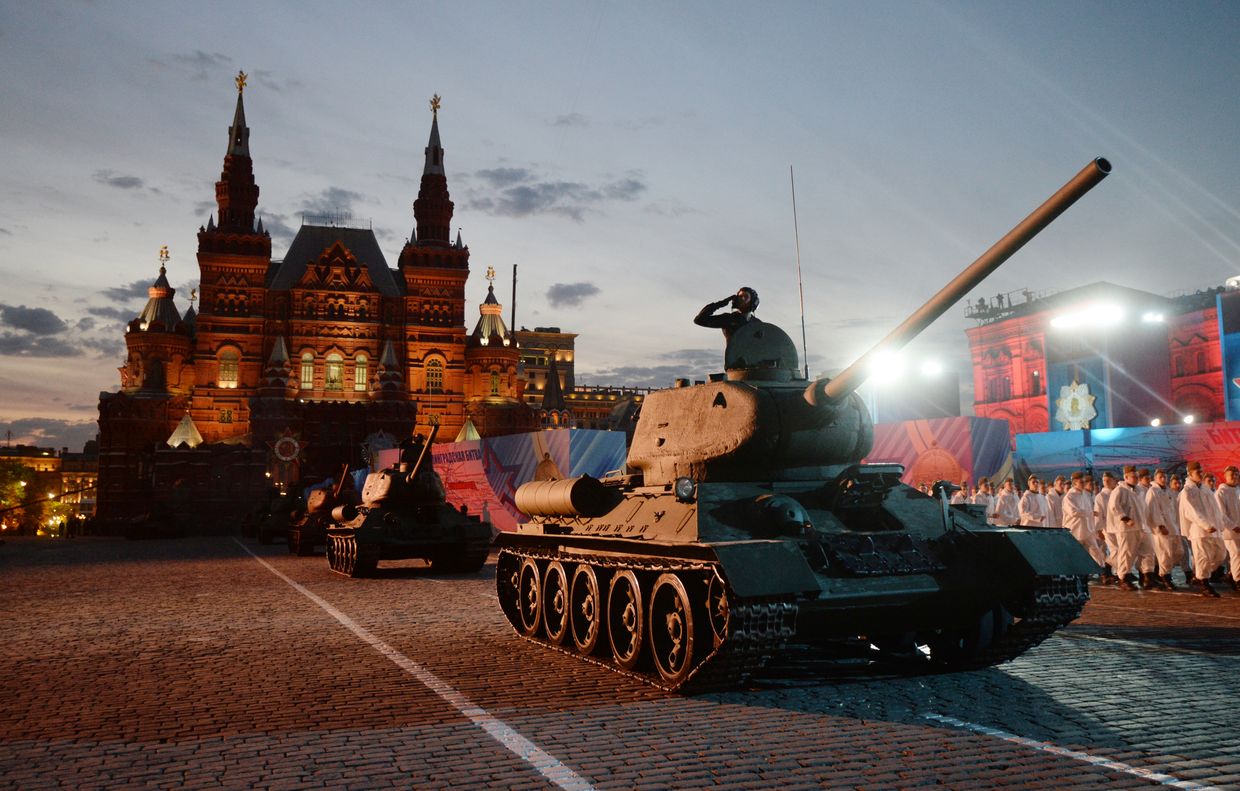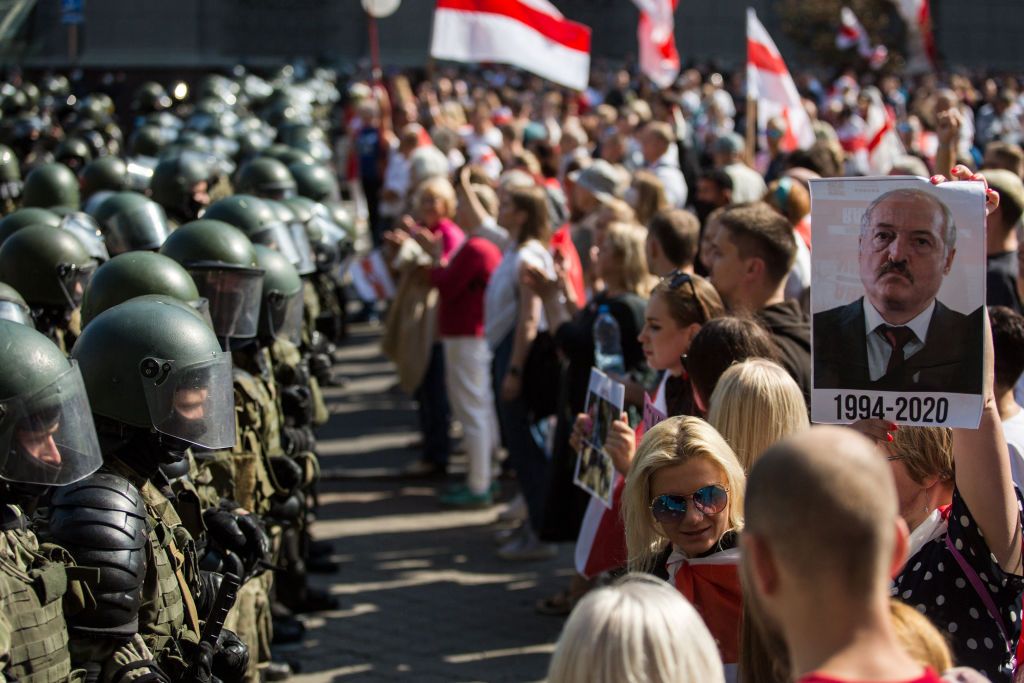Belarus Weekly: Tusk calls emergency meeting after Polish judge flees to Belarus

Belarus announces sudden inspection of tactical nuclear weapons launchers, simultaneously with Russia's tactical nuclear drills.
Polish Prime Minister Donald Tusk calls for a security meeting after Polish judge Tomasz Szmydt flees to Belarus and requests political asylum.
Latvia digs an anti-tank ditch on its borders with Russia and Belarus as part of its commitment to the joint Baltic Defense Line.
Belarusian democratic leader meets NATO chief amid growing security concerns over Russian and Belarusian nuclear drills.
Belarus plummets to 167th place in 2024 World Press Freedom Index as the regime of Alexander Lukashenko continues its crackdown on dissent.
Belarus holds snap inspection of nuclear launchers
Belarusian dictator Alexander Lukashenko ordered a sudden inspection of the country’s tactical nuclear weapons launchers, Belarus’ Defense Minister Viktor Khrenin announced on May 7.
The inspection involves the Iskander-M and Polonez-M missile systems, and a squadron of Su-25 attack aircraft. It encompasses delivering nuclear munitions to military units, loading them on launchers, and mounting them on Su-25 attack planes.
According to Major General Viktor Gulevich, the first deputy defense minister, the aircraft have already been redeployed to the reserve airfield. The monitoring group Belarusian Hajun observed at least two Su-25s flying from Lida airfield in the western part of the country to Machulishchy, a military air base near Minsk.
Belarus’ Security Council Secretary Alexander Volfovich claimed that the sudden inspection is being carried out simultaneously with a Russian exercise on the use of tactical nuclear weapons, maintaining that “these activities are purely defensive in nature and are not threatening to any state.”

Speaking at an event on May 7, Lukashenko said he plans to discuss the coordination and deployment of troops handling nuclear weapons during his meeting with Russian President Vladimir Putin on May 8 in Moscow.
The Kremlin announced drills in the use of tactical nuclear weapons on May 6, claiming this was a response to what it referred to as "provocative statements and threats from certain Western officials."
Putin’s spokesperson, Dmitry Peskov, said statements by Western politicians about sending troops to Ukraine were “a new round of escalation of tensions.”
Since signing the agreement on placing Russian tactical nuclear weapons on Belarusian soil on May 25, Lukashenko and Putin have repeatedly claimed nuclear weapons have been delivered to Belarus, but have never substantiated their claims with evidence.
Polish prosecutors open espionage investigation into judge who fled to Belarus
Polish prosecutors have opened a criminal investigation into Tomasz Szmydt, a Polish judge from the provincial administrative court in Warsaw, after he fled to Belarus and asked the country’s dictator Alexander Lukashenko for asylum on May 6.
The National Prosecutor’s Office has opened a probe into Szmydt on charges of espionage. In addition, Poland’s Internal Security Agency has launched a probe into how much access the judge had to classified information.
Polish Prime Minister Donald Tusk called on a meeting of the country’s special services to discuss alleged Russian and Belarusian infiltration of the Polish state apparatus. The prime minister said Szmydt’s case was “an issue that dates back a long time” rather than a “one-off stunt.”
Szmydt fled from Poland to Belarus while he was officially on vacation. At a press conference in Minsk on May 6, he announced his resignation from the position of judge and asked for political asylum due to his “disagreements” with the Polish government’s policies.
“I express my protest to the Polish authorities who, under the influence of the United States and the U.K., are leading (Poland) to war,” Szmydt said. He called for the restoration of Poland’s relations with Belarus and Russia.
Stanislaw Zaryn, a Polish presidential adviser, said on X that he didn’t know what Szmydt was “running away from.” Zaryn added that the former judge might become “a propaganda star for Russia and Belarus.”
Polish Foreign Minister Radoslaw Sikorski, referring to the case of Polish defector Emil Czeczko said, “We’ve had a traitor before; this seems to be a similar case.”
Czeczko, a former Polish soldier, fled to Belarus in December 2021, claiming he disagreed with Poland’s policy on the migration crisis and the practice of “inhuman treatment of refugees.”
In a flurry of interviews and press conferences with Belarusian propagandists, he alleged that Polish soldiers were killing migrants at the border. Belarusian propaganda used his likeness on billboards at the Belarusian-Polish border and established a “human rights” award in his name.
Czeczko was found hanged in his apartment in Minsk on March 17, 2022.
Latvia starts digging anti-tank ditch along its borders with Russia, Belarus
The Latvian army has started digging an anti-tank ditch as part of the joint Baltic defense line along the country’s borders with Russia and Belarus, the Latvian public broadcaster LSM reported on May 2.
The work commenced in the municipality of Ludza near the Terekhovo border crossing point, roughly a kilometer away from Russian territory. The first defensive line will consist of natural obstacles such as forests and rivers as well as artificial fortifications and ammunition depots. No minefields have been laid so far.
“We’re digging up the road and making an anti-tank ditch here so that vehicles, including tanks, cannot move along it,” said Lieutenant Colonel Kaspars Lazdins, the engineering inspector of Latvia’s National Armed Forces.
Three Baltic states – Latvia, Lithuania, and Estonia – agreed on Jan. 19 to build a Baltic defense zone on their borders with Russia and Belarus, prompted by the growing security concerns in Europe over Russia’s aggression against Ukraine.
Latvia and Belarus share a border of 172.9 kilometers, with just one operating checkpoint. In 2023, Latvia built 110 kilometers of fence along its border with Belarus following the artificial migration crisis orchestrated on the EU borders by Lukashenko’s regime.
Tsikhanouskaya meets NATO secretary general, addresses allies amid Russian nuclear drills
The leader of the Belarusian democratic opposition, Sviatlana Tsikhanouskaya, met with NATO Secretary General Jens Stoltenberg on May 7, a NATO press release reads.
Stoltenberg and Tsikhanouskaya met at NATO headquarters in Brussels for a discussion about the deployment of Russian nuclear weapons in Belarus.
Following the meeting, Tsikhanouskaya briefed the permanent representatives of NATO member states on the ongoing crisis in Belarus. She emphasized the importance of establishing a dialogue between the democratic movement in Belarus and NATO, which in particular would focus on shared security and stability objectives for Europe.

Tsikhanouskaya described her visit to NATO headquarters as "historic" for Belarus, saying the commitment to building a dialogue centered on regional security concerns.
Valery Kavaleuski, the deputy foreign minister in Tsikhanouskaya’s government in exile, said the meeting was a pivotal moment for fostering closer ties between democratic Belarus and NATO.
Lukashenko made Belarus a co-belligerent in Russia’s war against Ukraine. Despite not sending Belarusian troops to the front line, he allowed Russia to use his country’s territory as a jumping-off point for its attack on Kyiv, while Russian aircraft flew from Belarusian air bases to carry out airstrikes on Ukraine.
In 2023, Lukashenko also accepted the deployment of Russian tactical nuclear weapons in Belarus – a move condemned by NATO.
Tsikhanouskaya, who claims to have defeated Lukashenko in the contested 2020 Belarusian presidential elections, has supported Ukraine since the beginning of Russia’s full-scale invasion in 2022.
As crackdown continues, Belarus plunges to 167th place in World Press Freedom Index
Belarus ranked 167th out of 180 countries in the 2024 World Press Freedom Index, having dropped 10 points compared to last year due to the ongoing repressions of journalists and independent media outlets.
Dubbed “Europe’s most dangerous country for journalists until Russia’s invasion of Ukraine,” Belarus scored below Russia (162nd), just between Saudi Arabia (166th) and Cuba (168th).
“Belarusian media have never been more repressed by the authorities than since the controversial reelection of Alexander Lukashenko as head of state in August 2020,” the 2024 Reporters Without Borders report states.
One of the world’s biggest jailers of journalists, Belarus is holding 38 journalists and five media workers in jail on politically motivated charges. The authorities earlier introduced legislation equating independent journalism with “extremism,” punishable by seven years of imprisonment, essentially outlawing independent media in the country.
Over 400 journalists have been forced into exile by the Lukashenko regime, which has employed censorship, violence, mass arrests, and coordinated raids on homes and media offices to silence independent journalists.












